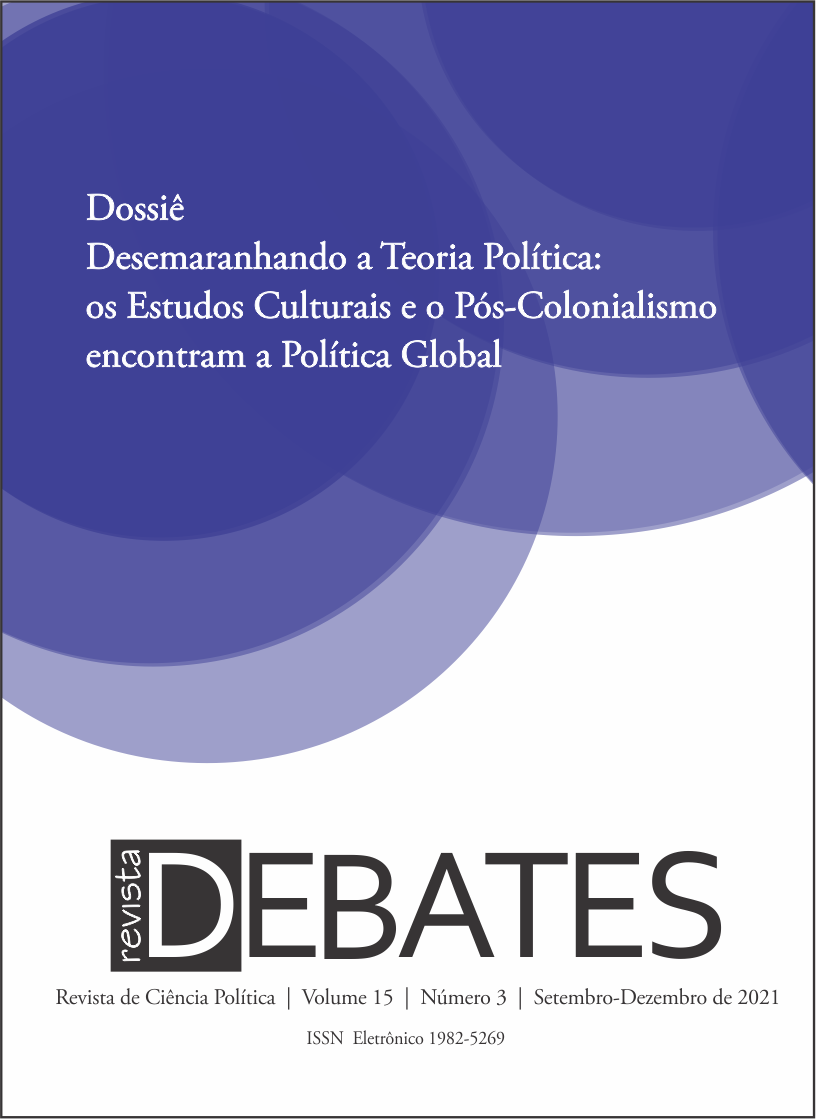Global politics, postcolonialism and cultural studies
DOI:
https://doi.org/10.22456/1982-5269.119591Keywords:
Postcolonialism, Cultural Studies, Foucault's Analytics of PowerAbstract
This paper is an attempt to pave the theoretical way to substitute the political for politics. After illustrating how mainstream IR theories reify the State as the dominant form of subjectivity, I explore the power ontology shared by the critics of this mode of representation. In my view, this conception of power explains why critical theorists have a broader and richer perspective that serves their aim of rethinking the political. This new ontology is presented through a reading of Foucault’s analytics of power: the juridico-discursive representation of power, which is attributed to mainstream scholars, is opposed to the power-as-productive representation, which I believe critical theorists share. By reading Darby's The Fiction of Imperialism and Said's Orientalism through the foucauldian categories of strategy and tactics, I attempt to illustrate how the power-as-productive figuration can be deployed to destabilize the juridico-discursive one. This is one way of locating where cultural studies and postcolonialism meet global politics.Downloads
Download data is not yet available.
Downloads
Published
2021-12-22
How to Cite
Mielniczuk, F. P. (2021). Global politics, postcolonialism and cultural studies. Revista Debates, 15(3), 36–52. https://doi.org/10.22456/1982-5269.119591
Issue
Section
Dossier



